US President Joe Biden has said a ceasefire between Israel and Hamas in Gaza is now unlikely to happen by Monday, the timeline that he had predicted earlier this week.
Asked by reporters whether he expected that to happen, Mr Biden said that "hope springs eternal" and that he had been speaking to regional leaders about a ceasefire, but added "probably not by Monday".
The health ministry in Hamas-run Gaza has said that the number of people killed in the Palestinian territory since 7 October has surpassed 30,000. It added that the toll includes at least 79 deaths reported overnight.
The ministry has also said that children have died of malnutrition in a Gaza hospital.
It comes amid an incident in Gaza City in which the health ministry said more than 100 Palestinians were shot dead by Israeli forces as they waited for an aid delivery this morning, with Israel challenging the death toll and saying many of the victims were runover by aid trucks.
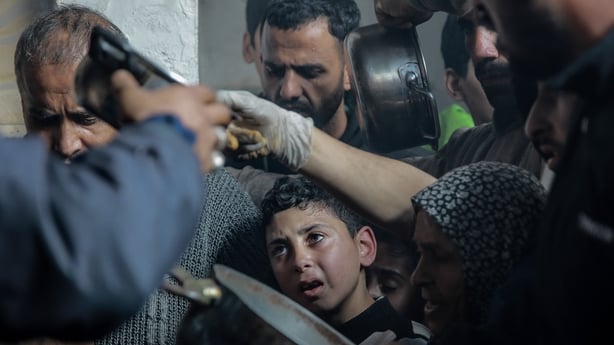
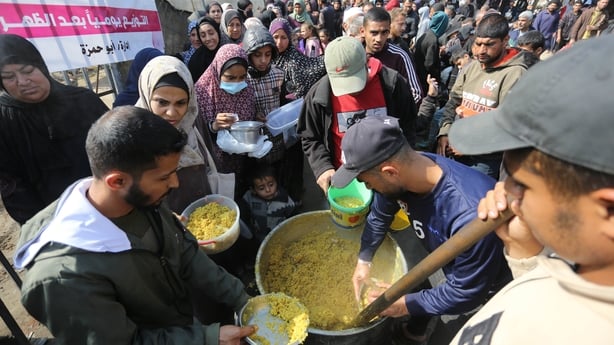
While mediators say a truce deal between Israel and Hamas could be just days away, aid agencies have sounded the alarm about the dire humanitarian conditions and warned of a looming famine in Gaza's north.
Two children died of "dehydration and malnutrition" at Gaza City's Al-Shifa hospital, said health ministry spokesman Ashraf al-Qudra, calling for "immediate action" from international institutions to prevent more of such deaths.
Citing the deteriorating conditions in Gaza, USAID head Samantha Power said Israel needed to open more crossings so that "vitally needed humanitarian assistance can be dramatically surged".
"This is a matter of life and death," Ms Power said in a video posted on X.
Mediators from Egypt, Qatar and the United States have been seeking a six-week pause in the war sparked by Hamas's 7 October attack on Israel, which in response vowed to eliminate the Palestinian Islamist group.
Negotiators are hoping a truce can begin by the start of Ramadan.
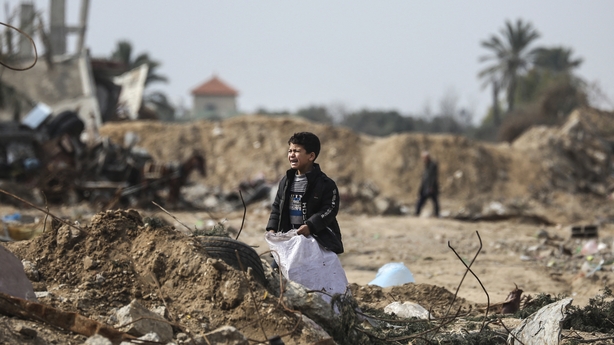
The proposals reportedly include the release of some Israeli hostages held in Gaza in exchange for several hundred Palestinian detainees held by Israel.
Short of the complete withdrawal Hamas has called for, a source from the group said the deal might see Israeli forces leave "cities and populated areas", allowing the return of some displaced Palestinians and humanitarian relief.
Famine 'imminent'
The crucial southern Gaza city of Rafah is the main entry point for aid crossing the border from neighbouring Egypt.
However, the World Food Programme said no humanitarian group had been able to deliver aid to the north for more than a month, accusing Israel of blocking access.
Neighbouring Jordan has coordinated efforts to air-drop supplies over southern Gaza.
"If nothing changes, a famine is imminent in northern Gaza," the World Food Programme's deputy executive director Carl Skau said.
Read more about the Middle East conflict
Israeli officials have denied blocking supplies, and the army yesterday said "50 trucks carrying humanitarian aid" had made it to northern Gaza in recent days.
The war was triggered by an unprecedented Hamas attack on southern Israel that resulted in the deaths of around 1,160 people, mostly civilians, according to an AFP tally of official Israeli figures.
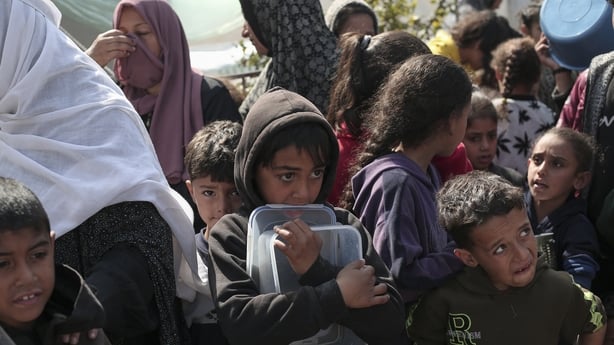
Militants also took about 250 hostages, 130 of whom remain in Gaza, including 31 presumed dead, according to Israel.
In less than five months, Israel's retaliatory military campaign in Gaza has killed at least 29,954 people, mostly women and children, according to the Hamas-run health ministry.
Hundreds of thousands of Gazans have been displaced, with nearly 1.5 million people now packed in Rafah.
Israel has repeatedly threatened a ground offensive on Rafah, with Prime Minister Benjamin Netanyahu saying a truce would only delay it, as such an operation was needed for "total victory" over Hamas.
Egypt, which borders Rafah, says an assault on the overcrowded city would have "catastrophic repercussions".
No one 'left behind'
While Israel's plans for post-war Gaza exclude any mention of the Palestinian Authority (PA), its top ally the United States and other powers have called for a revitalised PA, which governs the occupied West Bank, to take charge of the territory.
Palestinian foreign minister Riyad al-Maliki said a "technocratic" government without Gaza's rulers Hamas was needed to "stop this insane war" and facilitate relief operations and reconstruction.
His government, based in the West Bank, resigned this week, with prime minister Mohammad Shtayyeh citing the need for change after the war ends.
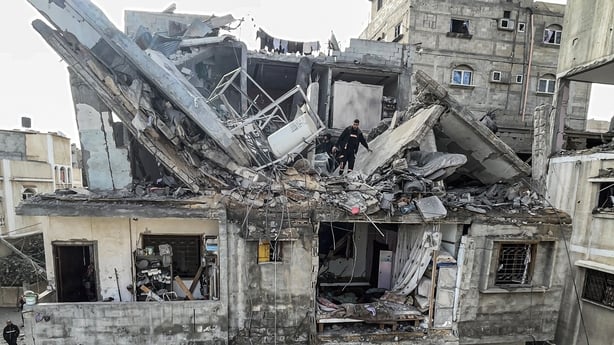
Palestinian factions, including Hamas and Fatah, were expected to arrive in Moscow for a meeting at Russia's invitation.
In Israel, Mr Netanyahu has come under increasing pressure to bring the hostages home.
Israeli Defence Minister Yoav Gallant insisted the government was "making every effort".
A group of 150 Israelis started a four-day march from Reim, near the Gaza border, to Jerusalem, calling for the government to reach a deal.

